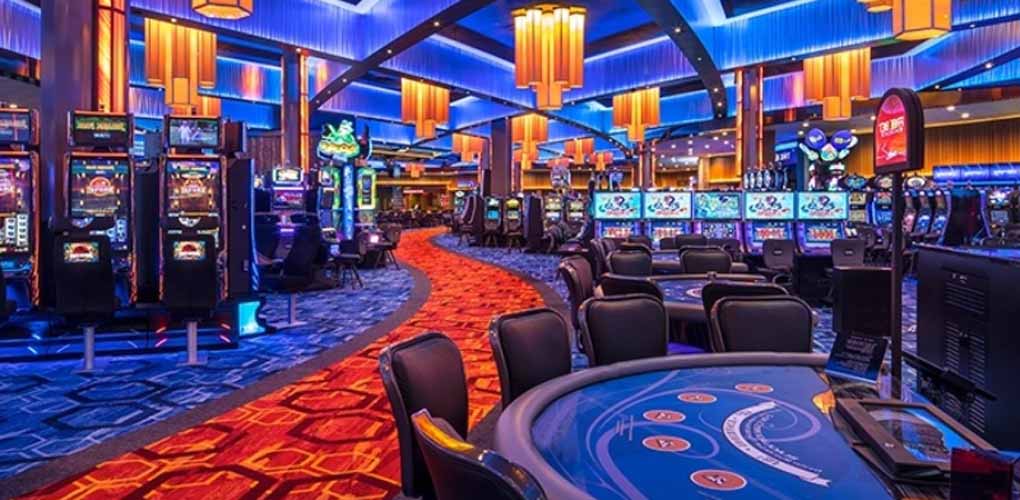
When we think of gambling games, the first images that frequently cross our minds are those of spinning roulette devices, card chips clattering on fabric surfaces, and cubes rolling across a betting area. While many view these games as simple pastimes fueled by luck, a deeper exploration reveals a captivating blend of strategy, skill, and community interaction that raises them well beyond simple chance. Regardless of whether you are a experienced player or a inquisitive newcomer, grasping the nuances of these activities can greatly enhance your experience and understanding.
Casino activities have evolved over hundreds of years, with different cultures contributing to their diverse backgrounds and different forms. From the intricate tactics of 21 to the deception methods in card games, players engage in a contest of wits as much as a risk on odds. This dynamic interplay between luck and skill creates a exciting atmosphere that draws countless people to casinos worldwide. As we delve into the world of table games, we will uncover the strategies that can shift the odds in your favor and the social elements that make these activities a popular choice for leisure and interaction.
A Strategy of Casino Games
Casino gaming often involve a mix of skill and luck, making them fascinating for players who like a challenge. Every game has its unique set of rules and tactics that can affect the results. For example, in titles like 21, participants are required to use strategies like counting cards and understanding the odds to make informed decisions. This expertise can greatly improve their winning potential, distinguishing experienced players from beginners who may depend entirely on luck.
Conversely, titles such as roulette may appear to be entirely based on chance, but tactical thinking can also play into the equation. Participants can choose between various wagering strategies, such as the Martingale strategy, where they raise the wagers after losses. This approach can establish a more methodical way to the game. Grasping the odds of specific wagers can also assist players make smarter decisions on the table, showcasing that even titles of chance, strategy can enhance the enjoyment.
Furthermore, the game of poker is notable as a game that heavily focuses on tactics. Unlike most gaming games, poker merges skill, psychology, and chance. Players must not only focus on the hands they are given but also consider their opponents behavior and betting patterns. NetTruyenViet Mastering concepts like position, pot odds, and reading bluffing is essential for winning. This depth of strategy in the game of poker often creates to a more immersive experience for players, as their choices and abilities greatly affect the game’s results.
Grasping Probability and Odds
In the world of gambling games, probability and ratios have a vital role in deciding a gambler’s possible results. Every game has its own set of guidelines that define how the chance of winning or failing is calculated. For instance, in matches like 21, participants have a chance to affect their ratios through strategy, whereas in games like the wheel, the outcomes are exclusively governed by luck. Grasping how these probabilities are calculated can significantly affect how a gambler deals with the match.
Odds are typically expressed in two formats: fractional and decimal. Fractional ratios represent the ratio of the amount won to the amount bet, whereas decimal ratios show the overall payout for a winning wager, which includes the initial bet. For example, if a match has ratios of 5 to 1, this implies that for every one unit bet, a player could gain five units if successful. Knowing how to read these ratios enables players to assess their possible earnings and make more informed decisions during play.
Players should also be conscious of the house edge, which is the casino’s inherent advantage over the gamblers. Each match has a different advantage, and understanding this idea is essential for managing one’s hopes and bankroll. Games with a lower advantage, such as blackjack and baccarat, typically offer superior odds for players compared to activities like slots and keno. By recognizing the relationship between probability, ratios, and the house edge, players can enhance their gambling experience and strategize more efficiently.
The Social Aspect of Casino Table Games
Table games at gaming establishments are often seen as a hub of community engagement, drawing participants together in a collective experience that extends far beyond the mere act of playing games. The atmosphere at a blackjack table can be electric, with gamblers engaging not only with the game itself but also with each other. Laughter, excitement, and, sometimes, playful teasing create connections that improve the overall enjoyment of the gaming experience. This communal aspect can turn a solitary endeavor into a dynamic gathering, making casino games particularly appealing.
One of the fascinating elements of gaming at tables is the way it fosters friendship among participants. Whether it’s collaborating to beat the dealer at a dice table or sharing stories between hands in a poker game, the environment encourages interaction. Players often share tips or tactics, creating a sense of community that enhances the fun. This interpersonal atmosphere can make new players feel welcomed and less intimidated by the competitive nature of casino games. As the game continues, friendships may form, leading to a sense of belonging that keeps players returning to the table.
Moreover, the social aspect of gaming at tables extends beyond just the participants. Dealers play a crucial role in encouraging interaction and maintaining the flow of the game. Their ability to engage players with friendly conversation and their expertise in managing the table can create an inviting atmosphere. This relationship between players and dealers adds another layer of enjoyment, where gamblers feel bonded not only to each other but also to the staff. Such interactions are often what make the experience unforgettable, as participants leave with tales to tell and connections made, reinforcing the notion that gaming at tables are truly about more than just chance.